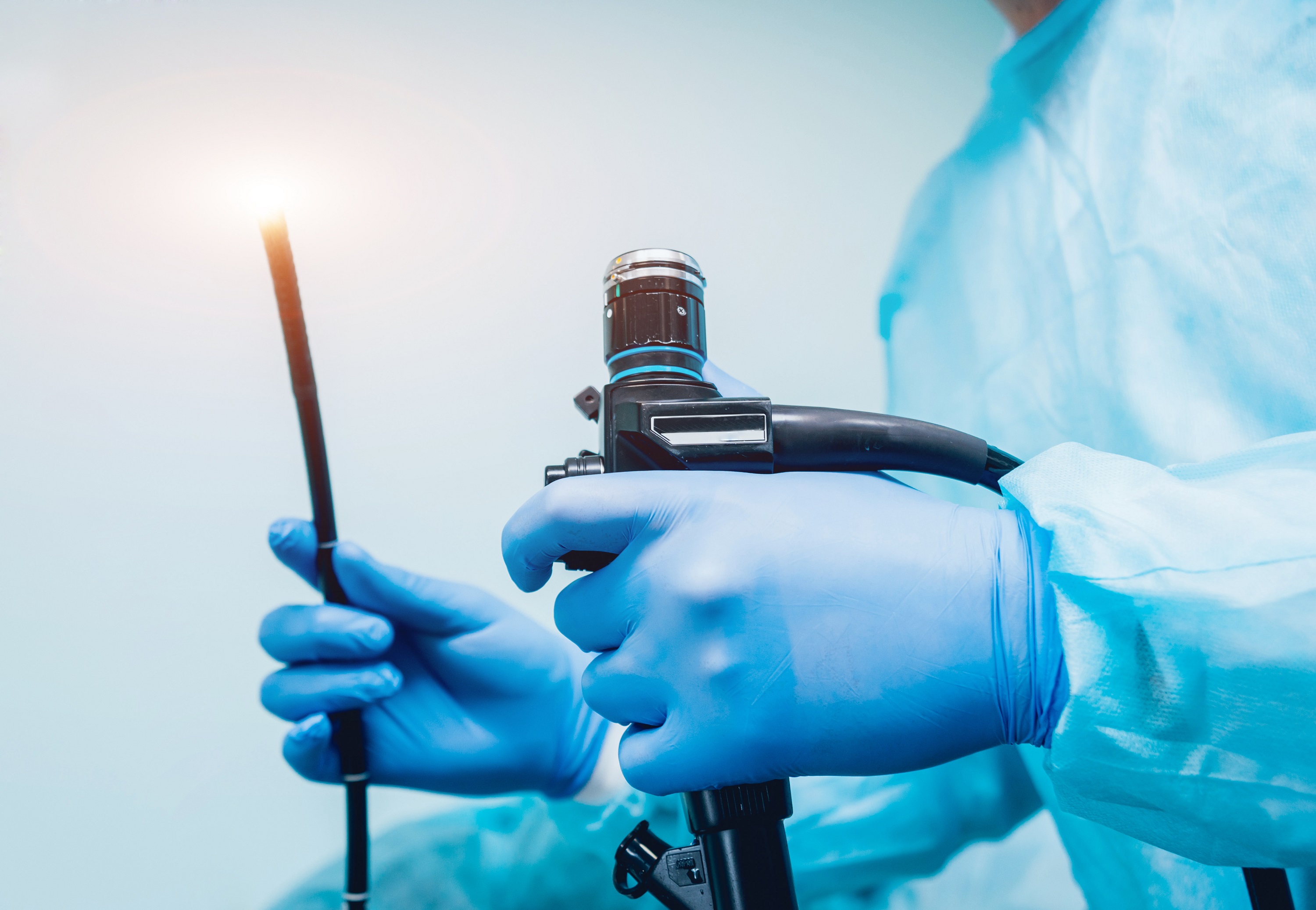Colonoscopy
Colonoscopy (videocolonoscopy) is an overview of all the parts of the large intestine taking into account the inversion examinations with 180° rotation. Thus, an optical device visualizes the intestinal mucous membrane at the exit, because it is the place where polyps and other neoformations are located.
Colonoscopy is the gold standard of screening diagnostics of colorectal cancer.
Colonoscopy allows to visually assess the condition of large intestine mucous membrane, to find inflammatory changes and neoformations timely. The method is informative in case of suspected oncological diseases.
Besides, the modern colonoscopy includes the check of the end section of large intestine. Neoformations (polyps and oncology at early stages) can be seen during a diagnostic procedure and removed immediately.
The following symptoms may be the indications for colonoscopy:
- irritable bowel syndrome;
- chronic anemia of unknown etiology;
- lingering intestinal obstructions with soreness;
- lack of energy;
- ileus;
- abrupt weight loss;
- lower abdominal pains, flatulence, feeling of fullness or partially void bowels after the defecation;
- blood-tinged, purulent or mucoid anal discharge;
- presence of a foreign body in the large intestine for determining of its location, precise localization and possibility of removal.
Specialists advise to undergo colonoscopy starting from 45 years of age, and even earlier in the cases of oncological alertness associated with the hereditary background.

Colonoscopy cannot be performed for the following patients:
- with a severe vascular pathology (dissecting aneurysm);
- with peritoneal adhesions;
- after a stroke;
- with peritonitis;
- with third-degree hypertensive disease;
- with severe forms of nonspecific ulcerative colitis and Crohn’s disease;
- with other severe diseases that cause the risk of condition deterioration;
- with apparent cardiopulmonary decompensation.
It is also not recommended to perform colonoscopy just after a surgery and for the patients with revealed acute inflammatory and necrotic processes in anal and rectum areas.
Description of the procedure
Preparation
The procedure is rather unpleasant, sometimes painful, and it is recommended to perform it under general anesthesia (medication sleep) (if there are no contraindications). That is why it is necessary to do clinical blood analysis, electrocardiography and get a consultation by anaesthesiologist as a preparation. The procedure can also be performed with no anesthesia at the patient’s request.
- It is necessary to adhere to the low-residue diet three days before the procedure, when highly flatulent food products are excluded.
- Low-fiber content ration is recommended within 72 hours before the colonoscopy.
- A patient should take purgatives the day before the examination.
What can you eat and drink?
Broths, boiled meat, fish and bird fillet, cheese, dried white bread, cookies without fibers, coffee, tea, pulpless fruit juices, kissel, non-carbonated beverages.
What cannot you eat and drink?
Vegetables (in any form), fresh and dried fruit, berries (kiwi, grapes, raspberry, currant), mushrooms, cereals, seeds, nuts, brown bread, spices, green vegetables, dairy products with preparation; fat meat and fish; milk; alcohol and carbonated drinks.
The list of undesired and allowed products is subject to change. Your doctor will tell you about it in detail.
- You should exclude the dinner the day before the examination, and the time between the last meal and the procedure should be not less than 18 hours.
- You must not take medications that are able to color fecal masses of intestinal mucous membrane, for example, activated carbon or iron supplements, within 24 hours before the examination.
- In the evening of the previous day and in the morning before the procedure it is necessary to do several cleansing enemas until the clean waters. Your doctor will give you the detailed information about the techniques of bowels cleansing and the preparation for the procedure.
- You must not either eat or drink in the day of the procedure.
The patient is located on a couch lying on the side. After the anesthesia has started, the endoscope tube is inserted into the patient's anus to the necessary mark to reach the examination area. The mark is made by a diagnostician in advance
Image from the camera located at the end of the endoscope is transmitted to the display, so the doctor can visually assess the condition of the mucous membrane of the large intestine and see all the structural changes.
The procedure usually takes of about 30 minutes. If the patient has chosen general anesthesia, an anesthesiologist monitors his or her state during the colonoscopy.
Endoscopists of Dobrobut clinic chain use modern high class equipment such as a video gastroscope and videocolonoscopes of the leading manufacturers of endoscopic equipment: Olympus and Pentax (Japan).



